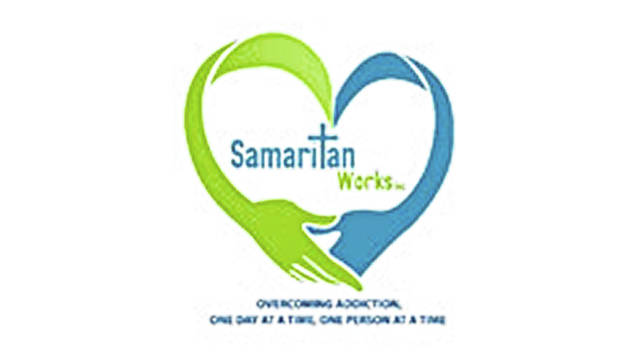
Editor’s note: The Sidney Daily News will be publishing a weekly series of articles about Samaritan Works and how the organization helps residents maintain their sobriety, whether it’s from drugs or alcohol.
SIDNEY — A non-profit, Christian based organization, Samaritan Works operates male and female sober living homes in Sidney dedicated to promoting the recovery of men and women who want their sobriety and need a way to hold on to it.
The Serenity House, Amelia House, and Horizon House are about faith, hope, structure and accountability.
“They are about asking for help and acknowledging that you need support to get alcohol and drugs out of your life before they destroy you,” said Samaritan Works Executive Director Sheila Lundy. “Drug and alcohol addiction are complicated and bring chaos into a person’s life ranging from mental health and medical issues, legal problems, poverty, hopelessness, homelessness and the list goes on.”
Why does a person choose to use drugs in the first place?
What the addicts say:
“At first, I chose to use heroine because a friend convinced me how good it would make me feel. I couldn’t believe I was doing it, but by the tenth time, it was so normal. It was a feeling of intense pleasure so I kept doing it to chase that high. There were people who used as much as I did, but something happened which caused them to stop at least stop using so much. Some got married or got into a relationship, some had a kid, or went back to school. But no matter how chaotic my life got, I couldn’t stop using. I lost self-control. I would go to bed crazy and wake up obsessing where I left off the night before. And other things I once enjoyed, like food and hanging out with family, longer seemed important.”
Why do some people get addicted and others don’t.
Addiction experts say:
Addiction is a confusing, progressive illness – a physical compulsion coupled with a mental obsession – and it defies logic. Free will is not involved because the sufferer has lost the power of choice.
Our brains are wired to make us want to repeat experiences that make us feel good, and our brains get used to the extra dopamine. It wants more and more of the drug to get the same feeling. But over time, the drug changes the way the brain works and causes changes in the brain’s chemical system and circuits, that affect judgment, decision making, memory and the ability to learn.
Each person’s body and brain is different. People also react differently to drugs. Some love the feeling the first time they try and want more. Others hate it and never try it again. Others hate it and even get very sick the first couple of times they use, but they continue to use until they get the good feeling.
Not everyone who uses drugs becomes addicted. But it can happen to anyone at any age. Something that may raise your chance of addiction is your family history. If you have a parent or sibling that suffers from an addiction, you are more likely to use. Genes are responsible for half of your odds.
Pre-teens and teen brains are still developing, and drug use can change that. Studies have shown the brain “matures” at about the age of 25. Maturity of the brain stops at the age a teen starts using.
Mental disorders – If you are depressed, have trouble paying attention, or worry constantly, you have a higher chance of addiction. You may turn to drugs as a way to cope and cover up a mental health issue.
Trouble relationships – If you grew up with family troubles and aren’t close to your parents or siblings, it may raise your choice of addiction.
So what is the progression? What signs show you crossed the line?
What the addicts says:
• An urge to use the drug every day, or many times a day.
• You take more drugs than you want to, and for longer than you thought you would.
• You always have the drug with you and buy it even if you can’t afford it.
• You keep using drugs, even if it causes you trouble at work or makes you lash out a friends or family.
• Isolation – You spend more time alone.
• You don’t take care of yourself or care how you look.
• You steal, lie, or do dangerous things like driving while high or have unsafe sex.
• You spend most of your time getting, using or recovering from the effect of drugs.
• You feel sick when you try to quit.
“When an addict or alcoholic gets to Serenity or Amelia House, they are saying they want help,” saod Lundy. “They realize they are powerless over the drug and have lost control over their life. The are wanting to surrender to their war on drugs and/or alcohol and adrenaline rushes. They are saying, ‘I quit. I don’t want this life anymore. I am willing to try a new way.’”


